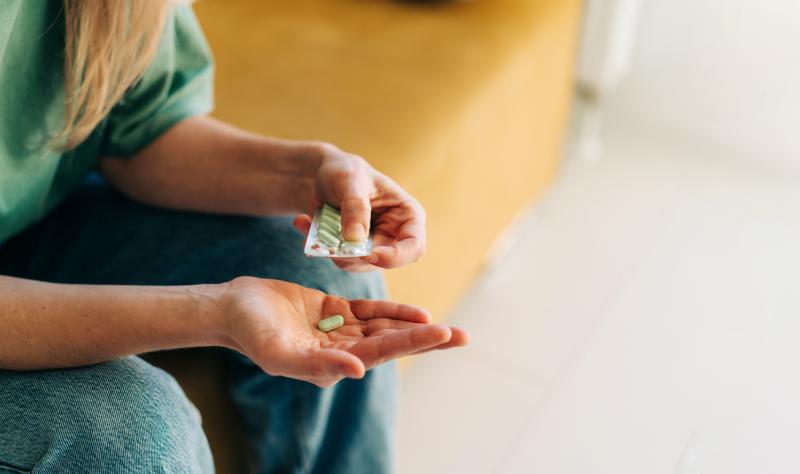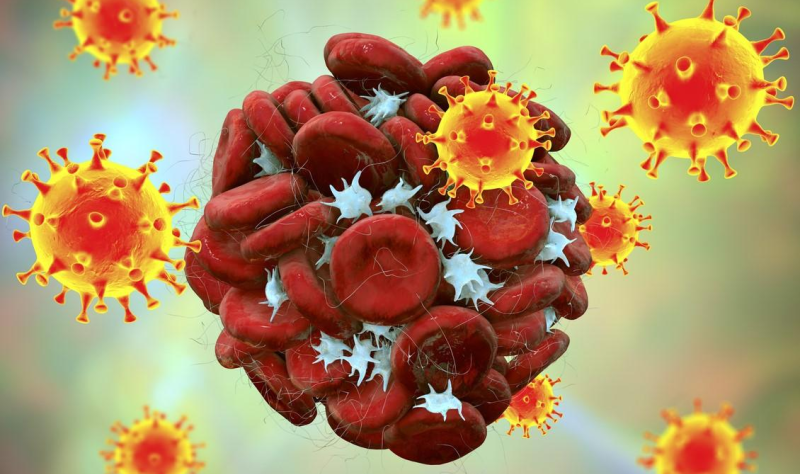Trial data show ensitrelvir has potent antiviral activity against COVID-19
Data from a phase 2 randomized controlled clinical trial show ensitrelvir accelerated viral clearance in patients with early symptomatic COVID-19.


Data from a phase 2 randomized controlled clinical trial indicate that the antiviral drug ensitrelvir is an effective alternative to other COVID-19 antiviral treatments, researchers reported last month in The Lancet Infectious Diseases.
The once-daily oral drug, a SARS-CoV-2 main protease inhibitor developed by Shionogi, is registered in Japan and Singapore for treating COVID-19. It has been given to more than 1 million people but is an investigative drug outside those countries and has not been compared with other COVID antivirals.
The aim of the trial was to compare ensitrelvir’s clinical antiviral effects against ritonavir-boosted nirmatrelvir (Paxlovid), which was the first oral antiviral to be approved by the US Food and Drug Administration (FDA) for COVID-19. While Paxlovid has become one of the primary medications for mild-to-moderate illness from COVID, it’s expensive, has a significant number of contraindications, and has limited availability outside of high-income countries.
The ongoing open-label trial included low-risk outpatients aged 18 to 60 years with early symptomatic COVID-19 who were recruited from clinics in Thailand and Laos. As the trial investigators explain, the trial focused on viral clearance rates to assess the drugs’ efficacy because COVID-19 has become an increasingly mild illness, and hard endpoints such as death and hospitalization are not as common as they were in the early years of the pandemic.
“The increasing rarity of hospitalisation and death in COVID-19, in marked contrast to 5 years ago, means that prohibitively large comparative studies in high-risk groups are now needed to detect clinically important differences between antiviral drugs,” they wrote.
“Given that acceleration in viral clearance reflects clinical benefit in COVID-19, we present the results of a head-to-head randomised controlled platform trial comparing the in-vivo antiviral activities of ensitrelvir versus ritonavir-boosted nirmatrelvir on the basis of viral clearance in adults with early symptomatic COVID-19,” they added.
Ensitrelvir speeds viral clearance
From March 17, 2023, through April 21, 2024, investigators from the University of Oxford, the Hospital for Tropical Diseases (Thailand), and Mahosot Hospital (Laos) enrolled and assigned 604 patients to receive either ensitrelvir (202), ritonavir-boosted nirmatrelvir (207), or no study drug (195). The primary outcome was the oropharyngeal viral clearance rate measured between day 0 and day 5.
Both ensitrelvir and ritonavir-boosted nirmatrelvir accelerated viral clearance. By day 3, the median viral densities were 2.9-fold lower in the ensitrelvir patients and 2.4-fold lower in the ritanovir-boosted nirmatrelvir patients compared with the patients who received no drug. By day 5, the rates of viral clearance compared with no study drug were 82% faster for ensitrelvir and 116% faster for ritonavir-boosted nirmatrelvir. In a non-inferiority comparison, viral clearance was 16% slower with ensitrelvir relative to nirmatrelvir.
Symptom resolution was also 32% faster in the ensitrelvir group and 38% faster in ritonavir-boosted nirmatrelvir group relative to the group that received no study drug. Viral rebound occurred in 15 (7%) of 207 patients in the nirmatrelvir group and 10 (5%) of 202 in the ensitrelvir group. No patients developed severe disease.
This first comparative in-vivo pharmacodynamic assessment of ensitrelvir and ritonavir-boosted nirmatrelvir confirms that ensitrelvir has potent antiviral activity in treating COVID-19.
In a meta-analysis that compared the efficacy of the two antivirals with other small-molecule drugs that have been tested in the trial since it began in 2021 (including remdesivir, molnupiravir, favipiravir, and ivermectin), ensitrelvir and ritonavir-boosted nirmatrelvir demonstrated the largest antiviral effects among 1,157 patients in Thailand and Laos.
“This first comparative in-vivo pharmacodynamic assessment of ensitrelvir and ritonavir-boosted nirmatrelvir confirms that ensitrelvir has potent antiviral activity in treating COVID-19,” the authors wrote.
Advantages over Paxlovid
The authors add that ensitrelvir has some advantages compared with ritonavir-boosted nirmatrelvir. For example, it has lower pill burden (one pill a day versus two) and does not have the bad taste associated with Paxlovid. In addition, it could be an alternative antiviral for immune-compromised patients who take medications that interact with ritonavir.
They also note that while the threat of COVID-19 to the general population has receded, and many patients, healthcare workers, and governments no longer view COVID-19 antivirals as necessary because the disease is now generally mild, that could change if more virulent variants emerge.
“Meanwhile COVID-19 can still be a dangerous illness in frail, older, or immunocompromised patients,” they wrote. “These are the patients who may still benefit from effective therapeutics.”
Although it’s unclear whether ensitrelvir will receive broader approval as a COVID antiviral treatment, in September, Shionogi submitted a new drug application (NDA) to FDA seeking approval of the drug for COVID-19 prevention. The NDA submission was based on a phase 3 trial that found ensitrelvir demonstrated a 67% reduced risk of COVID-19 infection when taken after exposure to an infected person.



